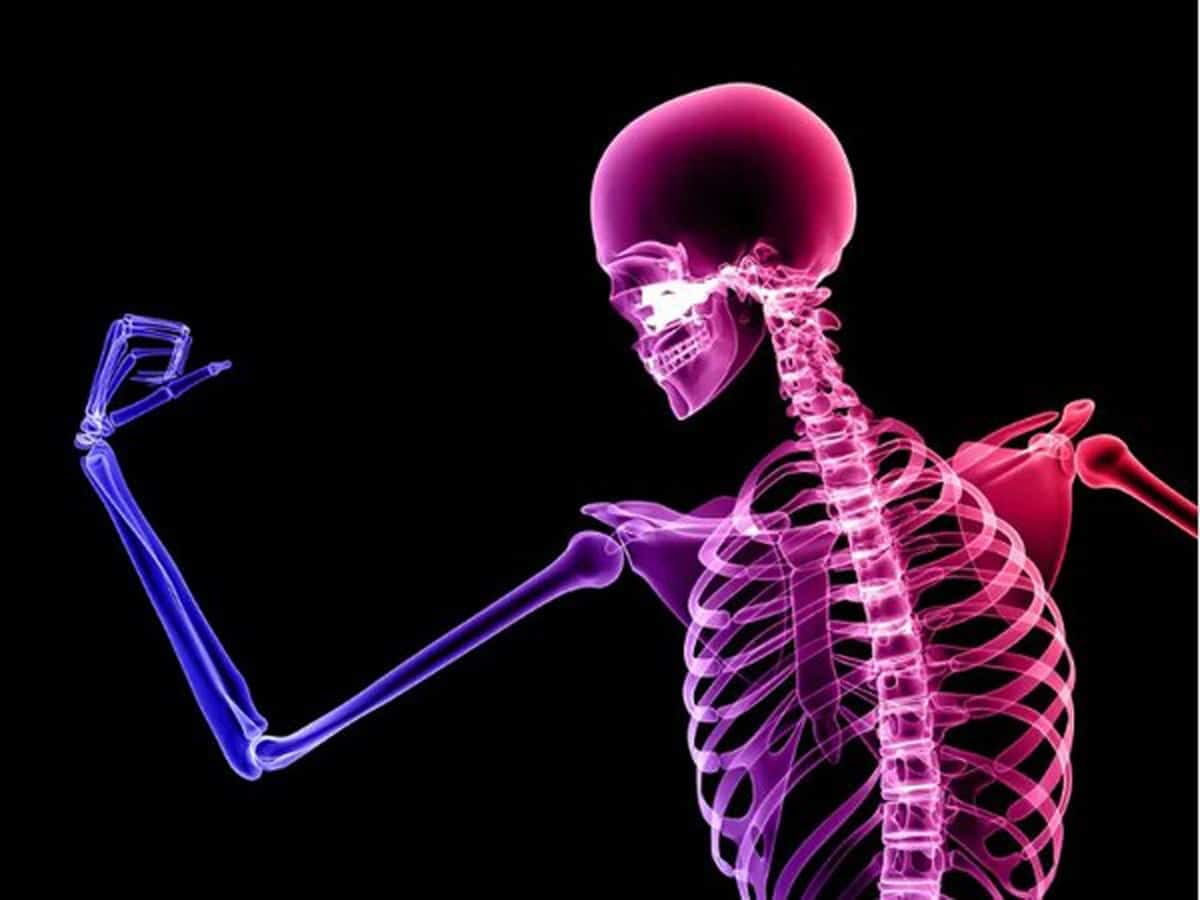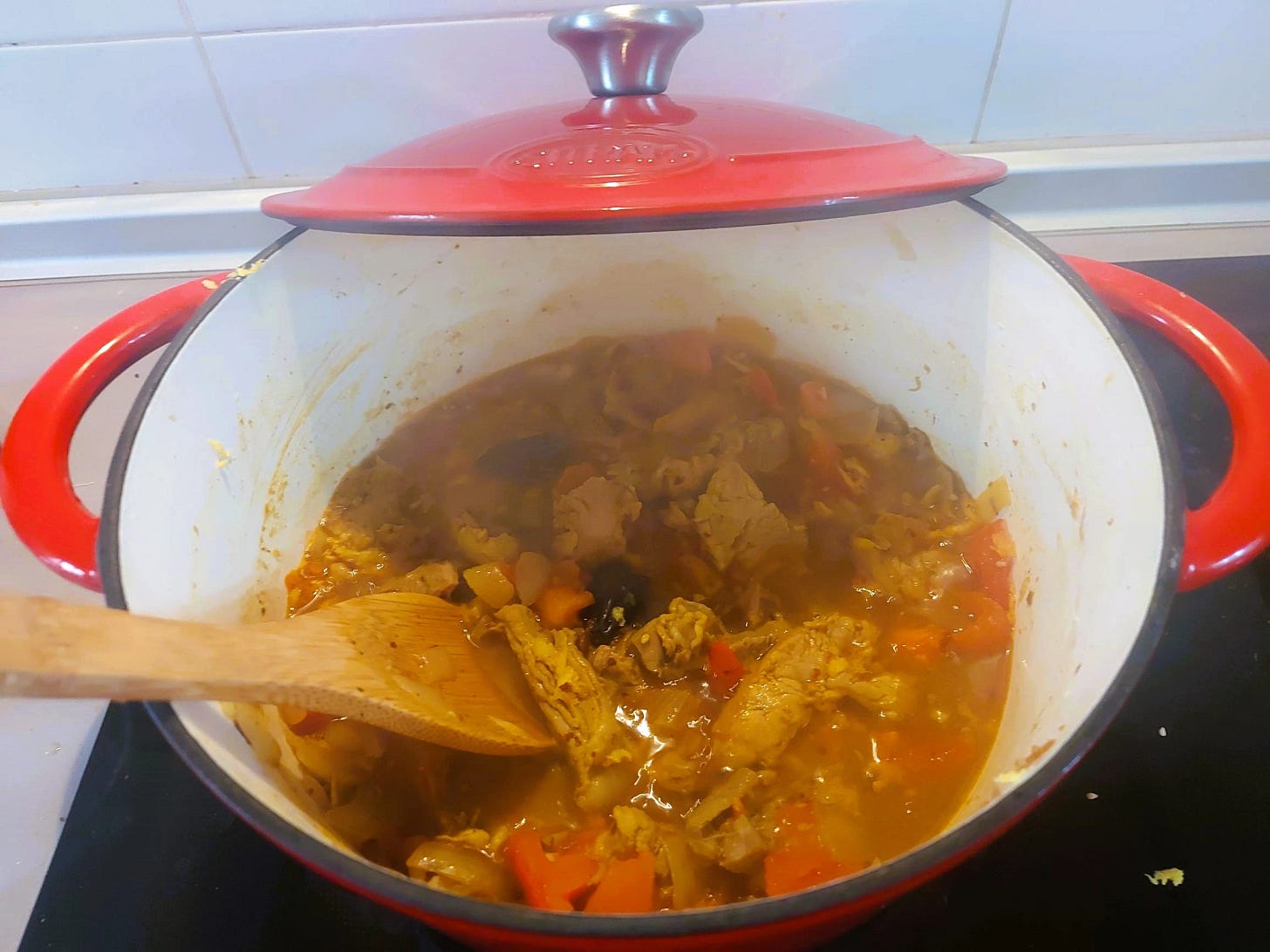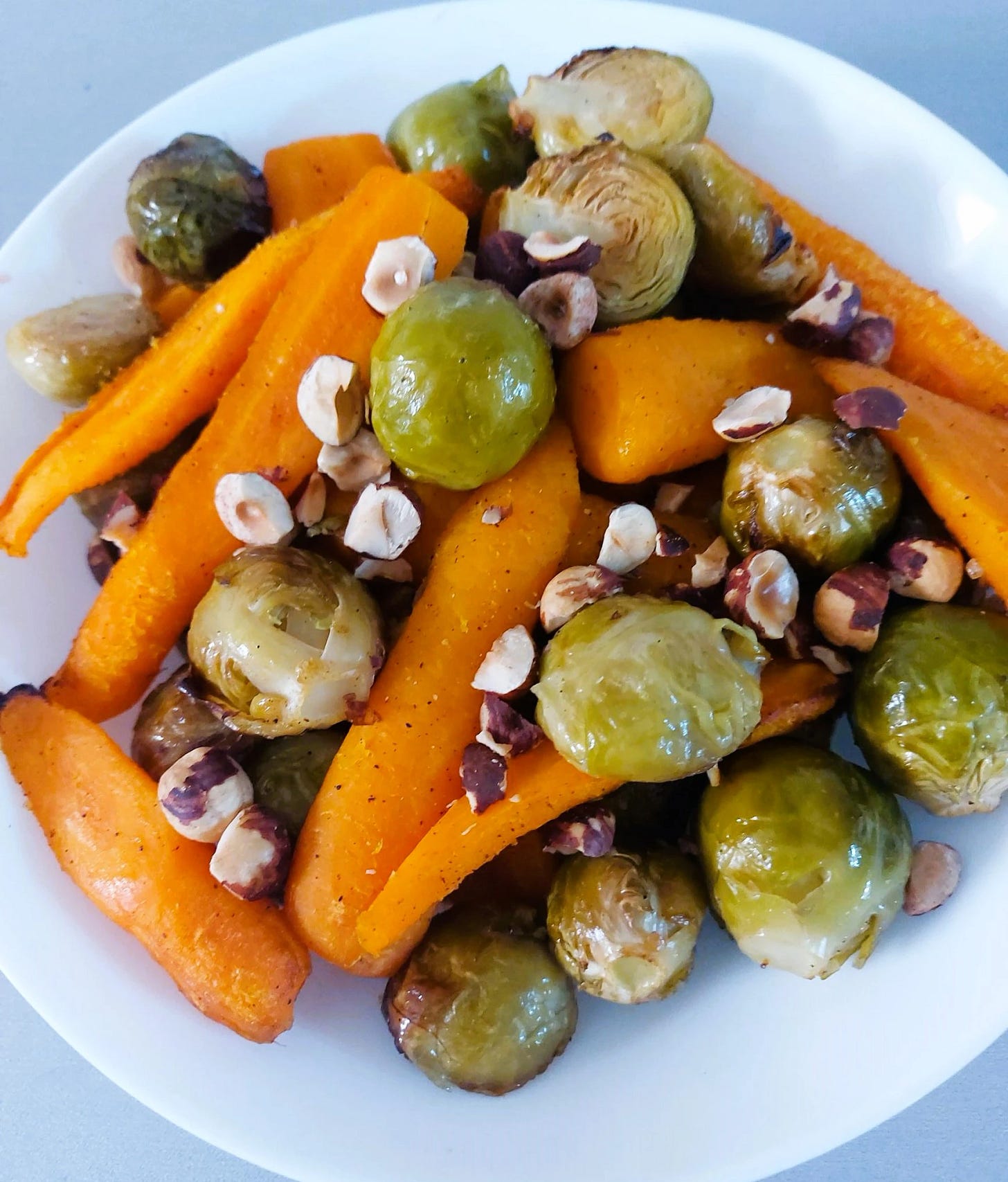FEEL IT IN YOUR BONES
Ways to promote bone health through food
You reach a certain age & you begin to notice that you’re getting shorter. Your back is more curved than it used to be or maybe it’s getting more painful. To top it off, you’ve managed to break a bone in your foot & you only stubbed your toe! If you take heed of these red flags & go for a bone density test, you may end up back in your doctor’s surgery clutching a prescription for calcium supplements. If the bone loss is partial, you will be diagnosed as having osteopenia. If it’s a more serious bone loss, it will be diagnosed as osteoporosis, literally porous bones.
Finding out that you have brittle, porous bones can be shocking & hugely disappointing. Sadly, some of the factors that cause our bones to weaken are outside of our control. These include being female, over 50, postmenopausal, having a family history of osteoporosis, or having a small frame. However, it’s never too early or too late to think about your bones. Recent studies give information on particular foods & activities to help with bone health.
It appears that while calcium is a critical component of bone health, there are other very important factors. Vitamin D, magnesium, vitamin K2, adequate protein, good gut health as well as weight-bearing exercise, all affect bone mineral density. Vitamin B12, potassium, vitamin C & vitamin E are important too as they stimulate bone-building cells & inhibit bone breakdown. There are lots of other vitamins & minerals required by bones, but they are only needed in trace amounts & are usually easy to get from our food.
Let’s start with the gut. The biggest factor in nutrients making or not making it to their destination is the health of the gut microbiome. Without the proper balance of good bacteria in your gut, you can lose many of the nutrients your bones need for health & healing. The nutrients may never make it to the bloodstream to be taken in & used. You can improve your gut by eating more fermented foods to help balance your microbiome with good bacteria. These include yogurt, kimchi, kefir, sauerkraut, kombucha & apple cider vinegar. You will get an extra benefit as these foods increase your vitamin K & calcium levels also.
Calcium is an important component of bones. Many people think that if you simply drink more milk you get stronger bones. However, that is the result of good marketing rather than good science. The reality is that while milk is a good source of calcium (in moderation) - with an average of 300mg per 250ml glass - drinking too much milk can be counter-productive. Many studies have dealt with this. It is called The Calcium Paradox
As an example, in countries where dairy products are a major part of the diet like Finland & Sweden, the population is still at very high risk of osteoporosis. One study with over 100,000 participants found that drinking 3 or more glasses of milk a day increased the risk of fractures. Therefore, while milk is a good source of calcium, drinking more is not necessarily better.
Calcium can also be obtained from non-dairy sources. These include leafy green vegetables like collard greens & brussels sprouts, seeds, beans, nuts, edamame, oranges, tinned salmon & tofu.
Getting calcium through your diet is the optimal way to meet your dietary needs. Taking small amounts throughout the day along with other food sources can help to absorb the calcium. If you do need a supplement, calcium citrate is better tolerated than calcium carbonate but is more expensive. If you need a high dose of calcium spread it out over several meals to prevent a spike of calcium in your bloodstream. Your body can only absorb 500mg of calcium in one meal.
We are told that women require 1200mg of calcium per day, men a little less at 1000mg. Surprisingly in countries where the average daily intake of calcium is much lower e.g. Japan & India, the incidence of bone fractures is quite low. The recommended calcium intake per day in Japan for adults is 600 mg/day. This indicates that factors other than calcium are involved in bone health.
As a result of the covid epidemic, we are more aware of the importance of vitamin D. Without vitamin D our bodies cannot absorb calcium. You can have your vitamin D levels checked in routine blood tests. Foods rich in vitamin D are sardines, milk, canned tuna, egg yolks, cod liver oil & mushrooms. As always, it is best to get your vitamin D from the sun & food where possible.
Vitamin K2 is enjoying being in the limelight at the moment. Its job is to activate the proteins that carry calcium into our bones & keep them out of soft tissues like our blood vessels & heart. You get K2 from certain animal products & some fermented foods. Studies have shown that supplementing with vitamin K2 increases bone density. Vitamin K2 has been approved for the treatment of osteoporosis in Japan since 1995. For those with a low bone mass, twice the recommended daily amount of 90mcg is helpful. As with vitamin D, K2 is fat-soluble & so you will get the maximum benefit by taking your supplement along with a fat-rich meal that could include foods like oils, nuts, or avocados.
Magnesium is a mineral that plays an important role in maintaining healthy bones. Magnesium balances the body’s calcium & keeps it in the bones & out of the arteries. Many people don’t get enough magnesium in their diets, especially if they eat large amounts of processed foods in which the magnesium is removed. Foods rich in magnesium include pumpkin seeds, peanuts, cashews, almonds, black beans, edamame, & dark chocolate. Higher magnesium levels have been shown to increase bone density.
Adequate protein is essential for good bone health particularly as you get older. Protein makes up half of the volume of bones & a third of their mass. Bones use protein to form a collagen-rich matrix. If you don’t get enough protein your risk for osteoporosis increases. Recommended daily allowance for protein is 0.8g/kg. A body with a low bone density may need to raise this to 1.2g/kg of body weight.
Some snacks rich in bone nutrients
Almonds-sprinkle them wherever you can. Turn them into almond flour & use them for baking.
Prunes (a.k.a. dried plums) - 6 prunes is the daily amount of boron for bone health. This mineral helps with the absorption of calcium, vitamin D & magnesium.
Eat rocket (arugula) when possible. This food is high in several key nutrients for bone health, including calcium & vitamin K.
Choose brown rice over white. It's got 3 times as much calcium.
Sprinkle Chia seeds on your porridge. 2 tablespoons of chia seeds have 177mg of calcium.
Take a daily probiotic yogurt. Recently published in the Journal of Nutrition, researchers from an Uruguay university showed that in young women, consuming a synbiotic yogurt daily (contains both a probiotic & prebiotic) increased their calcium absorption by an impressive 24% compared to consuming a regular yogurt. A live yogurt with some fruit will do just fine.
Stay active
To maintain strong bones, experts recommended engaging in regular weight-bearing activities such as walking, running & climbing stairs. Stamping your feet or behaving as if you were trying to crush a soda can, is the type of exercise that can help bones grow stronger. If you have severe osteoporosis or have already had a broken bone or fracture, some activities may be risky. Talk to your doctor before starting any new exercise to make sure it’s right for you. See more strength exercises in my previous blog Ageless Strength
Enjoy this entertaining short clip taken from the Today Show recently showing 3 simple lifestyle habits that will keep your bones strong.
https://www.today.com/health/diet-fitness/bone-health-food-exercise-posture-tips-rcna26553
Recipe #1 ~ Lamb Tagine with Prunes, Almonds & Sesame Seeds
Tagine refers to both the Moroccan cooking pot & the stew-like dish that is traditionally cooked inside. This slow-cooked stew combines warming spices with perfectly tender diced lamb & a little sweetness from the prunes. This dish produces a wonderful flavour that doesn’t require a lot of work. It can be cooked in the oven or on the hob. Chicken or pork can be substituted for lamb. It can also be made vegan by omitting the meat & adding more veg of your choice.
Serves 3/4
Ingredients
750g diced lamb
2 tablespoons olive oil
1 large tomato, chopped
1 large onion, chopped
1 clove garlic, chopped
4cm/1½” fresh ginger, grated or 1 tsp ground ginger
½ tsp salt & pepper
½ tsp paprika
½ tsp turmeric
1 handful of parsley or coriander, coarsely chopped
400ml chicken/lamb stock
10 prunes, pitted
For garnish: 1 tablespoon of toasted sesame seeds & ¼ cup toasted almonds
Method
1. Preheat the oven 130°C (fan oven), 150°C (conventional), 300°F, Gas 2.
2. Heat oil in an oven-proof dish on the hob & brown the lamb for 4-6 minutes.
3. Set aside the browned lamb
4. Use oil to sauté onions for 5 minutes.
5. Transfer the meat back into the pan with the tomato, parsley & ginger.
6. Add the spices, prunes, stock, salt & pepper & bring to a simmer.
7. Cover & transfer to the oven for 45 minutes.
8. Uncover, stir & continue cooking for another 30-45 minutes until meat is tender.
9. Make the yogurt mint sauce by blending 250g natural live yogurt with ½ bunch of chopped fresh mint
10. Serve the tagine sprinkled with toasted sesame seeds & almonds.
Recipe #2 ~ Roasted Brussels Sprouts & Carrots
This seasonal, nutritious dish has a sweet caramelised taste from the roasting process. Brussels sprouts like their cruciferous cousins are a good source of calcium as well as rich in fibre, vitamin K & magnesium. Vitamin K & magnesium help to absorb calcium which is an added bonus. The carrots supply vitamin K as well as potassium, B6 & beta-carotene. The hazelnuts sprinkled on top further enrich the calcium content of this dish. Enjoy the crispness & texture of these lovely veg!
Serves 4
Ingredients
500g brussels sprouts, trimmed & halved if too big.
500g carrots, peeled & halved
6 cloves garlic, chopped
2 tablespoons olive oil
½ tsp salt & pepper
Roasted hazelnuts (optional)
Method
1. Preheat the oven to 180°C (fan oven), 200°C (conventional) or 400°F, Gas 6.
2. In a glass dish 13” x 9” (or a roasting tray), add the brussels sprouts, carrots,
garlic, salt, pepper & olive oil.
3. Mix together well.
4. Cover with aluminium foil & bake in the oven for 25 minutes.
5. Remove the foil, stir & continue to bake for 10-15 minutes until golden.
6. Remove from the oven.
7. Sprinkle with some roasted hazelnuts & serve.
Enjoy!
Disclaimer
This blog is for informational purposes only & should not be construed as medical advice. If you have any questions about your own nutrition plan, please consult your doctor.









